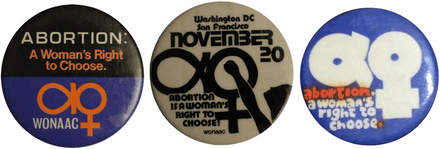Katherine Parkin, Ph.D., professor in the Department of History and Anthropology, recently published her article, “The Women’s National Abortion Action Coalition & the Abortion Tribunals, 1971-1972” in the “Journal of Family History.”
In the article, Parkin covers the creation of the Women’s National Abortion Action Coalition (WONAAC) and the focused activism of the group from its inception in July 1971 to the organization’s disappearance in January 1973, with the Supreme Court decision of Roe v. Wade.
Parkin notes the creation of WONAAC as an inclusive, far-reaching network that called for reproductive justice, an end to forced sterilization, and accessible birth control, in addition to holding men in power accountable for the oppression of women.
The group hosted its first conference during its inaugural month and went on to host many other marches, protests, and abortion tribunals across the country during 1972. Parkin further explains that WONAAC expanded quickly, forming chapters in 29 states, with at least 35 affiliate groups, and included “high school and college students and those who called themselves Third World women (Black, Hispanic, Asian, and Native American women).” The group also sought out participation from women outside of the United States.
“Fifty years ago, a group of dedicated women used public protests and women testifying in public tribunals across the country to rally support for the right to access legal abortions. The women’s efforts are valuable to consider, especially in light of the recent Supreme Court ruling dismantling Roe, for their consideration of the disproportionate and even deadly burden of illegal abortions borne by poor women, women of color, young women, and people who can get pregnant nationally,” Parkin said.


